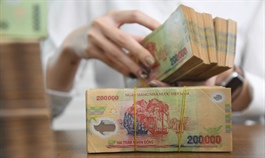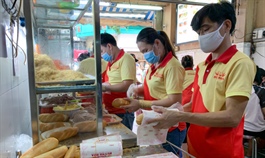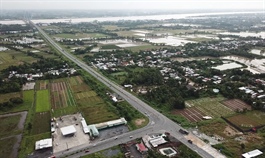Hanoi enterprises advised to take advantage of support policies
Hanoi enterprises advised to take advantage of support policies
The long and serious Covid-19 pandemic has had harsh impacts on businesses in Hanoi and severely reduced their resources, requiring preferential policies and financial support on the part of city authorities to overcome difficulties and proactive engagement of enterprises.
Mounting challenges
Reports by Hanoi's departments, sectors and associations on about 1,500 businesses in the city showed that the Covid-19 pandemic has severely affected production and business activities, especially disrupting supply chains and spilling over from processing and manufacturing of industrial products to services like banking, insurance, and logistics. Enterprises have encountered other difficulties in terms of supply sources, high production costs and other costs related to Covid-19 prevention and control.
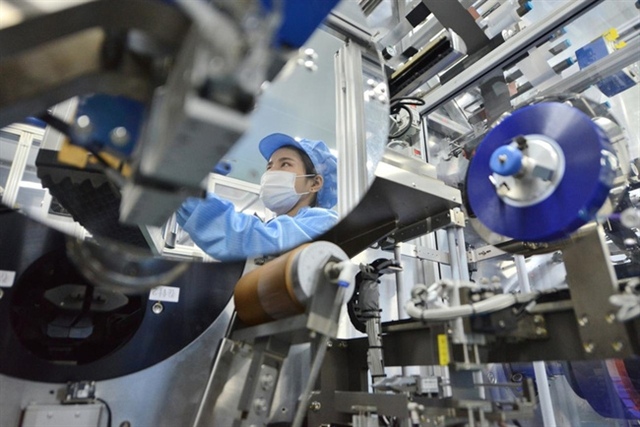
Hanoi’s enterprises face many difficulties and challenges |
Data from the Hanoi Statistical Office show that in the first eight months of 2021, more than 2,000 enterprises were dissolved, 9,300 enterprises registered to suspend operations, and 7,400 enterprises resumed operations. Meanwhile, according to the Hanoi Taxation Office, as of August 26, nearly 3,150 business households had submitted requests for support due to impacts of the pandemic in accordance with Government Resolution 68/NQ-CP and Decision 3642/QD-UBND of the Hanoi People's Committee.
At a recent online talk show “Strategies and directions for small and medium-sized enterprises during Covid-19 pandemic”, financial expert Nguyen Tri Hieu said that if Vietnam can control the pandemic by the end of the year, the number of bankrupt enterprises would reach about 100,000, with a majority from Hanoi. Capital shortages are prime drivers of bankruptcies. “Loss of liquidity, tightened control on movement and low economic demand while the supply is abundant lead to difficulties in export, making it impossible for businesses to have cash flows,” he emphasized.
In that context, economic experts recommend that enterprises change working and management models to sustain production; cut unnecessary costs and plan strategies in line with pandemic developments. Vice Chair of the Hanoi Association of Small and Medium Enterprises (Hanoisme) Mac Quoc Anh said that in addition to reducing land rent and exemptions from corporate income tax, the state needs to facilitate business access to bank credit and allow debt rescheduling in 2021 and 2022. These policies should be long term and accompany the recovery process.
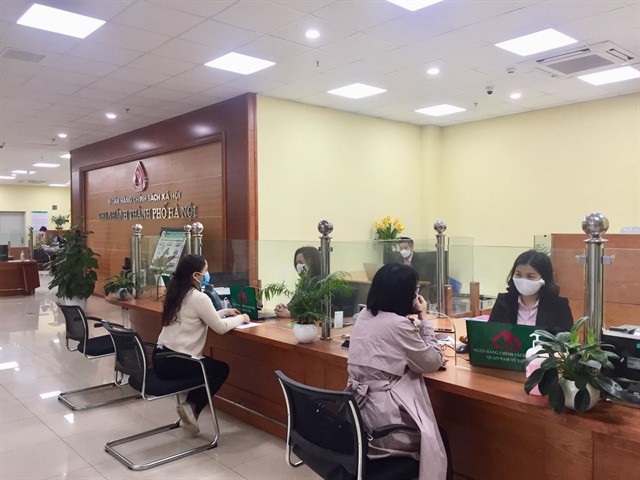
Helping enterprises access capital |
Facilitating capital access
According to a representative of the Hanoi branch of the Vietnam Bank for Social Policies, as of August 17, 2021, the bank had disbursed more than VND10 billion to employers to pay wages for 2,279 employees. It is also completing loan applications estimated at VND39.5 billion to support 8,937 employees. The bank is also reviewing and evaluating production and business conditions of enterprises to restructure repayment terms, exempt or reduce loan interest rates, offer more preferential credit packages and apply flexible interest rates to facilitate capital access.
Economic experts assessed that Hanoi authorities have been proactive in issuing effective directives and policies for businesses in this critical period. However, to turn the policies into a lever for survival and growth, municipal agencies need to determine the type of difficulties affecting companies. According to Mac Quoc Anh, the policies are correct, but businesses are still having difficulties in implementing them. For example, although banks have agreed to reduce interest rates, or extend debt repayment terms, the terms must be made clear soon so that businesses can access capital to sustain their operations. Therefore, organizations and associations need to raise their voice and support enterprises in this regard.
|
The business community in Hanoi believes that the active and synchronous involvement of the politicalsystem will help businesses stabilize their production and business activities, as well as help the capital'seconomy overcome current challenges. |










